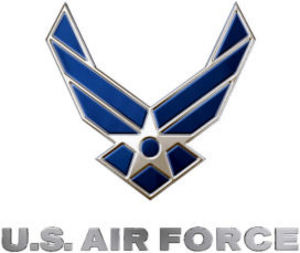For those who have looked on the internet for information on life in navy OCS, the available material is suprisingly scant. Most sites sum up the program with ‘there is no preparing for OCS,’ and ‘it can’t be described, you have to be there.’
Certainly, these articles did completely fail to explain in visceral, meaningful terms what it’s actually like.
In this article I will begin my attempt to remedy his failure by listing some major reality checks:
-You’ve missed the boat if you’re at OCS. You missed the easy path of ROTC in college. You don’t have the medical, nursing, or law degree to make it into the gravy experience that is ODS. You don’t have a commission straight out of college as you would have if you had graduated from the academy. If you wanted to be in the military so badly, chances are you would already have done it.
Chances are, the economy is bad, your major isn’t marketable, grad school is too expensive and lengthy, you’re restless and desperate. Don’t do it if these are your reasons.
To really put things in perspective: if you had gone navy reserves during or after college, you might be able to get into DCO(direct commissioned officer) and get your commission in the reserves upon acceptance and go through an easy two weeks of training in which no one is trying to get you to drop out.
-When you take a single bite of food at Navy OCS, you must progress through 8 discrete steps using only a spoon no matter what kind of food is on your plate. You will do this for 8 weeks of the program until you become a complete zombie as you ‘eat by the numbers.’ You cannot move your head, you must sit perfectly straight, you cannot talk, you cannot make eye contact with anyone, your legs are uncomfortably crammed to the left of the nearest table legs. Three times a day every day for as long as a year if you’re unlucky. Is this THE thing you must do with your life?
-To call OCS a ‘school’ is a serious misnomer. There is nothing academic about the program. The classes play a fairly minor role; they are just trials to see how you will perform under pressure. It is not the goal of the program to transmit vocational or academic knowledge. It is NOT a school.
-At no point in the OCS program will one be getting much more than 4 hours of sleep per night. Sometimes less than this, if any sleep at all.
-Your voice will be so ruined from screaming at the top of your lungs that you will barely be able to talk after the first few days. Some people’s voices never really seem to go back to the way they were. They remain harsh, scratchy, and nasal.
-Many people have visibly aged by the end of the program. They have deep creases in their faces, some people end up with bits of grey hair because of the chronic stress and sleep deprivation.
-Physical fitness is an insignificant concern in the program. It makes no difference so long as one can pass the minimum requirements. If you are exceptionally fit and they don’t like you, they can always zero the count on pushups. If they want you to fail, you will fail.
For every class’s entry PFA, there is going to be a quota for failures. Naval OCS operates by a very strict, very controlled formula. They will see to it that holding company never becomes too sparsely populated.
The truth is that the program has plenty of un-athletic, out of shape people. They pass because they are able to play the mental game, not because they can do pushups.
-Most trials at OCS are completely subjective in practice. If your drill instructor doesn’t like you, you will never pass 4th week inspection. RLP(room, locker, personnel) as it is called, exists to form an effective barrier beyond which undesirables will never pass. No progress in OCS counts for much until RLP has been passed.
-Naval OCS is not a 3 month program. A minority of candidates graduate with their original class. Most people are going to be there 4, 5 or more months. Some people take a year to graduate. One who is prepared for the real Navy OCS should not expect to make it in 3 months. The odds are against you.
-Naval OCS has nothing to do with being a ‘gentlemen.’ Those who are loud, pushy, negative, and self-centered thrive in the program. Once they’re near graduation, they happily turn on the new students.
-Naval OCS regularly turns out people with permanent back and knee injuries. If this happens you will be sent home. They no longer have any use for you. You are literally referred to as a ‘broken body’ while on base.
-The program DOES see if you can perform under stress and obey instantly no matter what, but the means are mostly arbitrary. You are not holding your composure as you command a virtual fleet, but rather as a marine screams as you learn rifle drill, a skill you will never use again after OCS.
-If you don’t already enjoy folding things in perfectly straight lines, and keeping your living space pristinely clean, the program will be extremely difficult to graduate. Being a military officer is not a good fit if you do not actually enjoy conforming to rigid procedures and following rules by the books. Your role is to be an obedient middle manager, not a thinker.
-Especially at the beginning of the program there is no free time. None. In an entire day, literally not a single second of it. In the first few days, you might not have time to take a crap. You will be too focused on survival in the program to care about taking a crap. In the few hours of sleep you can get, the day replays relentlessly in your head, you wake up day after day feeling as though there has not been one second’s reprieve. Many people experience vivid nightmares about the program. Some people are forced to drop out because the anxiety prevents them from getting any sleep at all until they finally collapse.
-Going through OCS is not necessarily about being ‘tough’ or ‘proud.’ It has far more to do with being able to give oneself completely to authority no matter how absurd its demands might seem. Personal pride is a disadvantage in the program, one must be able to accept even the lowest of humiliations with obedience and deference. Your outlet is to humiliate the people lower than yourself as you progress through the program.
-A DOR (drop on request) will NOT negatively impact your record to any significant degree. Even military jobs are still accessible.
In fact, many OCS dropouts are prime material for other government agencies. You might very well have a fully processed clearance: you can save agencies lots of trouble and many months of processing time. No one will care that you couldn’t make perfect hospital corners on your rack.
-They will LIE to you in the program to scare you away from a DOR. If you drop, they will keep you around for 3 weeks to a month so you can consider you decision in full, but it’s not bad because you can leave the base and have weekends off. When you first drop out, they will send you to get signatures all the way up the chain of command. As you work your way up, some of them might tell you you’re a failure in life and try to intimidate you into going back into the program. Candi-Os(students nearing graduation) are particularly likely to resort to these tactics.




